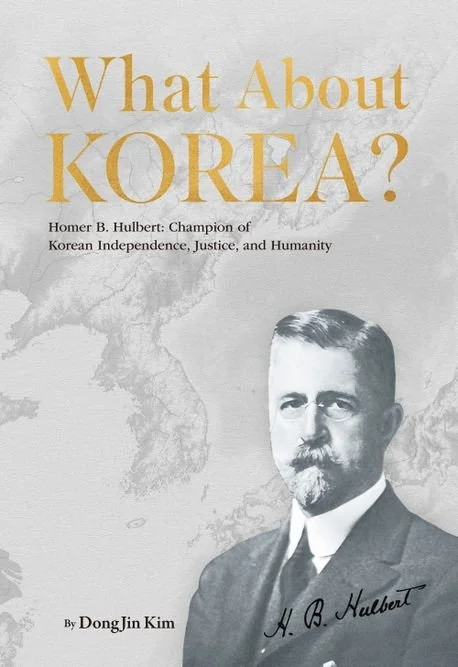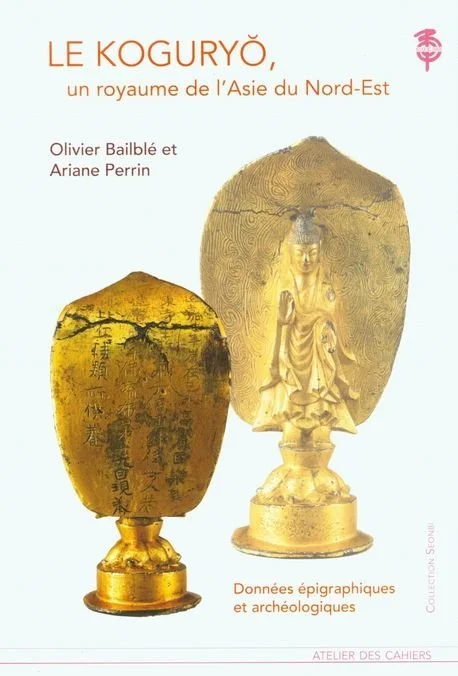<KR>
광복 80주년을 맞아 한국 독립운동의 숨은 영웅 ‘호머 B. 헐버트’를 조명한 영문 도서 『What About KOREA?』 출간
한국 독립운동의 숨은 영웅이자 한국 근대 교육의 선구자로 평가받는 호머 B. 헐버트(Homer B. Hulbert)의 삶과 업적을 다룬 신간 『What About KOREA?』가 3년여간의 작업 끝에 출간되었다. 이 책은 저자 김동진 (사)헐버트박사기념사업회 회장이 수십 년간 헐버트의 삶을 연구한 결과물을 집대성한 작품으로 한미 양국 및 전 세계의 독자들에게 헐버트의 헌신적 행보와 학자적 풍모를 재조명하는 기회를 제공한다.
헐버트는 1886년 고종의 초빙으로 조선에 온 후 근대 교육과 한국학 연구에 기여했으며, 일본의 식민지배에 맞서 한국의 독립을 최선봉에 서서 지원한 인물이다. 그는 1905년과 1907년 두 차례에 걸쳐 고종 황제의 특사로 임명되어 각각 미국과 헤이그를 방문해 한국의 주권을 되찾기 위해 노력했으며, 1919년에는 미국 상원에 「What About Korea?」라는 한국 독립 호소문을 제출해 일본의 잔학상을 고발하고 한국의 완전 독립을 촉구했다.
본 저서는 헐버트의 교육자이자 한글학자, 역사학자, 언론인, 황제의 밀사, 독립운동가로서의 다양한 면모를 보여 주며, 그가 한글 등 한국의 역사와 문화를 세계에 알리는 데 기여한 과정을 상세히 담고 있다. 또한, 헐버트가 남긴 회고록, 기고문, 편지 및 언론 기사 등을 통해 그의 사상과 철학을 살펴보고, 한국 독립운동에 대한 그의 헌신을 되새긴다.
저자인 김동진 회장은 헐버트와 그의 업적에 대해 다음과 같이 밝혔다.
"헐버트는 단순한 교육자가 아닌, 한국을 진심으로 사랑했던 인물입니다. 그는 생전에 ‘나는 웨스트민스터 사원보다 한국에 묻히기를 원한다’라고 말하며, 한국과의 깊은 유대감을 표현했습니다. 이 책을 통해 더 많은 사람들이 헐버트의 업적을 기억하고, 그의 정신을 되새기는 계기가 되기를 바랍니다."
헐버트는 1949년 이승만 대통령의 국빈 초청을 받아 40년 만에 서울을 방문한 후 생을 마감했으며, 그의 유언에 따라 서울 양화진 외국인 묘지에 안장되었다. 대한민국 정부는 그의 공로를 기리기 위해 1950년 건국공로훈장 태극장, 금관문화훈장(2014년)을 추서했다. 서울아리랑페스티벌은 2015년 그에게 구전으로 전해오던 아리랑을 현대화한 공로로 서울아리랑상을 수여했다.
『What About KOREA?』는 한국 근현대사와 국제관계에 관심이 있는 독자들에게 깊은 통찰을 제공하는 동시에 한국 독립운동에 기여한 외국인의 헌신을 새롭게 밝히는 중요한 국제판 기록물로 자리 잡을 것이다.
<ENG>
To mark the 80th anniversary of Korea's liberation, "What About KOREA?" is published in English, which highlights the hidden hero of the Korean independence movement, Homer B. Hulbert
"What About KOREA?" a new book about the life and achievements of Homer B. Hulbert, who is considered a hidden hero of the Korean independence movement and a pioneer of modern Korean education, was published after more than three years of work. This book is a compilation of the results of decades of research on Hulbert's life by the author Kim Dong-jin, chairman of the Hulbert Memorial Society, and provides readers in both Korea and the U.S. and around the world with an opportunity to shed new light on Hulbert's devoted actions and academic appearance.
Hulbert contributed to modern education and the study of Korean studies after coming to Joseon at the invitation of King Gojong in 1886, and was at the forefront of supporting Korean independence against Japanese colonialism. He was appointed as Emperor Gojong's special envoy twice, in 1905 and 1907, and visited the United States and the Hague, respectively, to try to regain Korean sovereignty. In 1919, he filed a Korean independence appeal with the U.S. Senate, "What About Korea?" to accuse Japan of atrocities and call for Korea's full independence.
This book shows various aspects of Hulbert as an educator, Hangul scholar, historian, journalist, emperor's secret service, and independence activist, and details how he contributed to promoting Korean history and culture to the world, including Hangul. It also examines Hulbert's thoughts and philosophy through his memoirs, contributions, letters, and media articles, and reflects on his dedication to the Korean independence movement.
Chairman Kim Dong-jin, the author, made the following remarks about Hulbert and his achievements.
"Hulbert was not just an educator, but a person who truly loved Korea. He expressed his deep bond with Korea during his lifetime, saying, 'I would rather be buried in Korea than in Westminster Abbey.' I hope this book will serve as an opportunity for more people to remember Hulbert's achievements and reflect on his spirit."
Hulbert ended his life after visiting Seoul after 40 years at the invitation of President Rhee Syng-man as a state guest in 1949, and was buried at Yanghwajin Foreigners' Cemetery in Seoul according to his will. The South Korean government awarded him the Order of Merit for National Foundation Taeguk Theater and the Geumgwan Order of Culture (2014) in 1950 to honor him. The Seoul Arirang Festival awarded him the Seoul Arirang Award in 2015 for modernizing Arirang, which had been handed down as a word of mouth.
What About KOREA? will provide a deep insight to readers interested in modern and international history and international relations in Korea, while also establishing itself as an important international document that reveals the dedication of foreigners who have contributed to the Korean independence movement.
<FR>
Pour marquer le 80e anniversaire de la libération de la Corée, "What About Korea?" est publié en anglais, qui souligne le héros caché du mouvement pour l'indépendance coréenne, Homer B. Hulbert.
« What About Korea? », un nouveau livre sur la vie et les réalisations d'Homer B. Hulbert, considéré comme un héros caché du mouvement pour l'indépendance coréenne et un pionnier de l'éducation moderne coréenne, a été publié après plus de trois ans de travail. Ce livre est une compilation des résultats de décennies de recherches sur la vie de Hulbert par l'auteur Kim Dong-jin, président de la Hulbert Memorial Society, et fournit aux lecteurs tant en Corée qu'aux États-Unis et dans le monde entier l'occasion d'éclairer les actions et l'apparence académique de Hulbert.
Hulbert contribue à l'éducation moderne et à l'étude des études coréennes après son arrivée à Joseon à l'invitation du roi Yongongong en 1886. Il est à l'avant-garde de l'indépendance coréenne contre le colonialisme japonais. Il a été nommé envoyé spécial de l'empereur Yongongong à deux reprises, en 1905 et 1907, et s'est rendu aux États-Unis et à La Haye, respectivement, pour tenter de regagner la souveraineté coréenne. En 1919, il a déposé un appel à l'indépendance coréenne auprès du Sénat américain, « What About Korea? », pour accuser le Japon d'atrocités et demander l'indépendance totale de la Corée.
Ce livre montre divers aspects de Hulbert en tant qu'éducateur, érudit, historien, journaliste, service secret de l'empereur et militant pour l'indépendance, et explique comment il a contribué à promouvoir l'histoire et la culture coréennes dans le monde, y compris Hangul. Il examine également les pensées et la philosophie de Hulbert à travers ses mémoires, ses contributions, ses lettres et ses articles dans les médias et réfléchit à son dévouement au mouvement pour l'indépendance de la Corée.
Le Président Kim Dong-jin, l'auteur, a fait les remarques suivantes au sujet de Hulbert et de ses réalisations.
"Hulbert n'était pas seulement un éducateur, mais une personne qui aimait vraiment la Corée. Il a exprimé son profond lien avec la Corée au cours de sa vie, disant : "Je préférerais être enterré en Corée plutôt qu'à l'abbaye de Westminster." J'espère que ce livre sera l'occasion pour un plus grand nombre de personnes de se souvenir des réalisations de Hulbert et de réfléchir à son esprit.
Hulbert a mis fin à ses jours après s'être rendu à Séoul après 40 ans à l'invitation du président Rhee Syng-man comme invité d'État en 1949, et a été enterré au cimetière des étrangers de Yanghwajin à Séoul selon sa volonté. Le gouvernement sud-coréen lui a décerné l'Ordre du Mérite pour la Fondation nationale Taeguk Theater et l'Ordre de la culture Geumgwan (2014) en 1950 pour l'honorer. Le Seoul Arirang Festival lui a décerné en 2015 le prix Séoul Arirang pour la modernisation d'Arirang, qui avait été remis comme un bouche à oreille.
Qu'en est-il de la Corée? donnera une idée profonde aux lecteurs qui s'intéressent à l'histoire moderne et internationale et aux relations internationales en Corée, tout en s'établissant comme un document international important qui révèle le dévouement des étrangers qui ont contribué au mouvement pour l'indépendance de la Corée.
목차
Advancing Hulbert’s Legacy into the Future! ㆍ xii
Acknowledgments ㆍ xvi
Hulbert’s Works, Letters, and Newspaper Articles ㆍ xviii
Notes for Readers ㆍ xx
Chapter 1 Hulbert’s Fateful Karma with Joseon
Ahn Junggeun: “Koreans must not forget Hulbert even for a single day” ㆍ 3
Hulbert’s Heart Stirs at the Word “Korea” ㆍ 6
The Hulbert Family Motto: “Character is more fundamental than victory” ㆍ 14
Affection for Korea Sprouts at Yukyeonggongwon (Royal College) ㆍ 19
Korea’s First Literary Diplomat ㆍ 40
A Pioneer in Advocating for the Use of Hangeul (Korean Alphabet) ㆍ 48
Saminpilji (사민필지): A World Gazetteer and the First Textbook Written in Hangeul ㆍ 58
Chapter 2 Missionary, Educator, and Journalist
The Ideal Christian ㆍ 71
A Central Figure in the Founding of the YMCA in Korea ㆍ 80
Hulbert’s Fury: The Japanese Assassination of the Joseon Queen ㆍ 83
Pioneering Korea’s Modern Education ㆍ 93
Education: The Only Means for Survival ㆍ 104
A Dedicated Journalist ㆍ 113
Combating Japanese Abuses to Curb Social Decay ㆍ 119
Appealing to the Powers, Not for Intervention ㆍ 123
Chapter 3 A Pioneer of Korean Studies
An Extraordinary Writer ㆍ 131
A True Icon of Hangeul Devotion ㆍ 134
A Pioneer in the Study of Spoken Korean ㆍ 149
Illuminating Korean Literature through Nature ㆍ 162
The First Western Notation of “Arirang” ㆍ 172
Introducing Korea’s Cultural Heritage to the World ㆍ 181
An Unparalleled Historian ㆍ 194
The History of Korea: An Immortal Work on Korean History ㆍ 202
The Passing of Korea: A Labor of Love for Korea ㆍ 214
Chapter 4 Hulbert’s Destiny: A 50-Year Journey in the Korean Independence Movement
Hulbert: The Conscience of History beyond Race and Borders ㆍ 225
The Revival of Toyotomi’s “Occupy Joseon Project” after 300 Years ㆍ 229
The Emperor’s Special Envoy to Washington: Preventing the Japanese Protectorate in 1905 ㆍ 237
Hulbert’s Frustrations with the Roosevelt Administration ㆍ 247
Civil Rights Activist ㆍ 263
Efforts to Reclaim a Korean Treasure Stolen by a Japanese Minister ㆍ 270
The Emperor’s Special Envoy to the 1907 Hague Peace Conference ㆍ 276
Chapter 5 38 Years of a Korean Independence Movement in the United States
Hulbert’s Solitary Fight for Korean Independence in America ㆍ 299
A Lonely Voice for Korea among Pro-Japanese Intellectuals ㆍ 305
Return to Korea in 1909: Leaving Behind a Last Will and Testament ㆍ 312
“I Stand for Korean People, Now and Always … Until I Die” ㆍ 318
Roosevelt Acknowledges His Complicity in Japan’s Occupation of Korea ㆍ 327
The March First Manse (만세) Uprising: A God-Given Right for Koreans ㆍ 336
“What About Korea?” A Resolute Appeal to the U.S. Senate ㆍ 344
The Love of Korean People: My Most Precious Possession ㆍ 355
Hulbert’s Views on Japan and Gojong ㆍ 366
Chapter 6 The Emperor’s Deposit-Stolen by the Japanese-Must Be Returned to Korea
The Third Calling from Emperor Gojong ㆍ 373
Hulbert’s Struggle to Recover the Stolen Deposit ㆍ 387
Rectify a Past Injustice by Recovering the Stolen Deposit ㆍ 392
Chapter 7 “I would rather be buried in Korea than in Westminster Abbey”
Returned to Korea after 40 Years ㆍ 397
Hulbert: Who Loved Korea More Than Koreans Themselves ㆍ 414
Homer Hulbert’s Spirit Lives On ㆍ 422
Hulbert’s Works ㆍ 431
The Life of Homer Bezaleel Hulbert ㆍ 433
Chronicle of Korea’s Enlightenment Period (1864-1910) ㆍ 438
References ㆍ 444
Index ㆍ 449
About the Author ㆍ 460
The Hulbert Memorial Society ㆍ 462





























